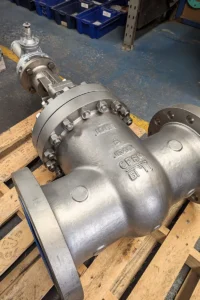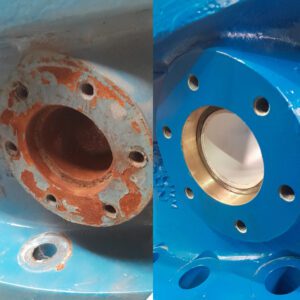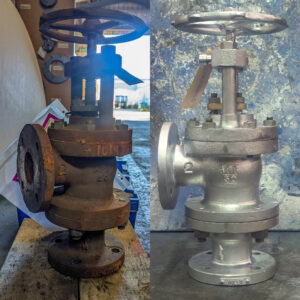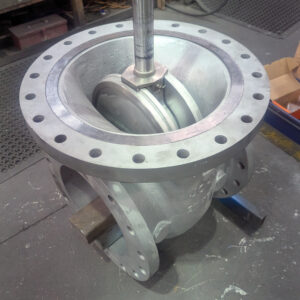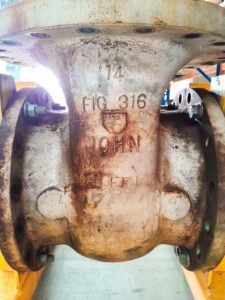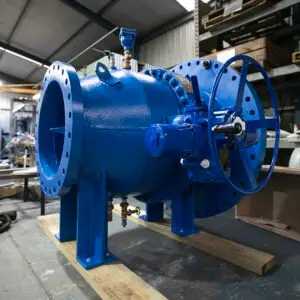Restore Performance. Extend Lifespan. Ensure Compliance.
Industrial Valve Refurbishment & Repair Solutions
What we do
Industrial valves are vital components across countless Australian industries—from manufacturing and petrochemicals to power generation and water treatment. At John Valves, we offer expert valve reconditioning, refurbishment, overhaul, and repair services to keep your systems running safely.
Reconditioning
Our valve reconditioning services restore your valves to a fully operational state by addressing wear, corrosion, and seal damage. This cost-effective and environmentally sustainable option helps you avoid full replacement while meeting industry standards.
- Cost-effective alternative to replacement
- Reduced downtime and waste
- Full inspection and component replacement
- Performed to meet AS/NZS, API, and ISO standards
Refurbishment
Valve refurbishment goes beyond repair. We aim to return your valves to like-new condition, often improving performance using modern materials and technologies. This includes full disassembly, re-machining, and precision testing.
- Ideal for critical or safety-related valves
- Upgrades using advanced materials
- Restores to original specifications or better
- Extends lifespan and reduces future risk
Overhaul
Our valve overhaul services include detailed inspection, full strip-down, cleaning/blasting, part replacement and reassembly. Every overhauled valve undergoes pressure testing and calibration in line with the most rigorous standards.
- Workshop-based overhauls
- Shell and seat testing
- Detailed reporting for compliance and audits
- Available as part of shutdown and turnaround projects
Repairs
We offer fast, effective valve repairs for all types, brands and pressure classes. From safety relief valves to large-diameter gate valves, our skilled technicians resolve specific issues to get your equipment back in service quickly.
- All valve types: gate, globe, check, ball, butterfly, air, and more
- Emergency breakdown response available
- Seal replacement, seat lapping, leakage resolution
- OEM parts or high-grade equivalents used
Valve Types We Service
We work with virtually all valve types and brands, including:
- Gate Valves (bonnet, stem, jamming issues)
- Globe Valves (throttling service, flow regulation)
- Safety Relief Valves (testing, calibration, pop action)
- Check Valves (backflow prevention, swing/piston types)
- Ball Valves (seat/seal wear, sticking, lubrication)
- Butterfly Valves (disc alignment, liner degradation)
- Air Valves (orifice inspection, blockage clearing)
- Knife Gate Valves (blade condition, abrasive media wear)
- and more
Refurbishment Services
- Valve Refurbishment, Reconditioning and Repairs
- Valve Identification Services
- Sales of New and Reconditioned Valves
- Comprehensive Valve Management Solutions
- Valve Swap-Over Services
- Accredited Testing
- High and Low Pressure Gas and Hydrostatic Testing
- Spare Parts Manufacturing and Supply
- Custom and Specialised Projects
- Valve Modifications and Customisation
- Emergency Breakdown Support
- Compliance and Certification Services (e.g., pressure testing, safety standards)
- Consultation and Technical Support
Many of the valves end up in the scrapyard. Choosing to recondition can save you up to 50% or more compared to buying new equipment.
Reconditioning can reduce the need for costly modifications to existing pipework that new equipment might necessitate.
Turnaround
Our efficient processes ensure minimal disruption to your operations. Timing is depends on the size and condition.
Life
Maximise your investment's by extending the life of your valves. Regular maintenance & repair on expensive valves.
We can organise the collection and delivery of your valve. We have experience shipping nationally and internationally..
Avoid the valve having to be scraped and recycled. This is an energy-intensive process and avoiding the costs on materials.
Valve brands, types and sizes.
Refurbishing industrial valves involves working with a wide spectrum of brands and makes, each with unique construction features and performance criteria. Well-known names in the field include Bailey, Kunkle, Crane, Lesser, Hopkinson, Mack, Klinger, Saunders, Spirax Sarco, among others.
These manufacturers produce a variety of valve types—such as gate, globe, check, ball, butterfly, and safety valves—each with specific tolerances, sealing methods, and material compositions. Effective reconditioning requires familiarity with the engineering standards of each brand, as well as the capability to source or reproduce parts that meet original design specifications.
Technicians must be adaptable and experienced in handling both legacy and modern valve designs to restore functionality and ensure reliable performance after overhaul.
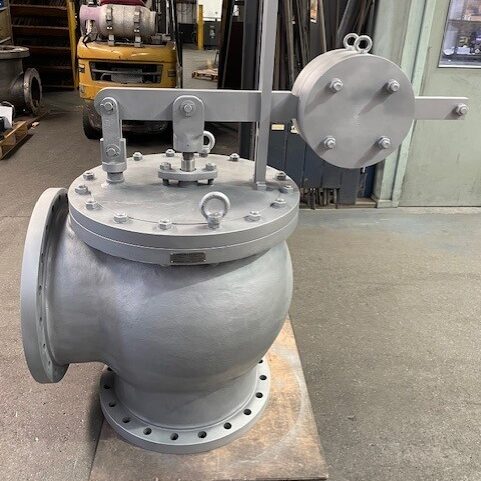
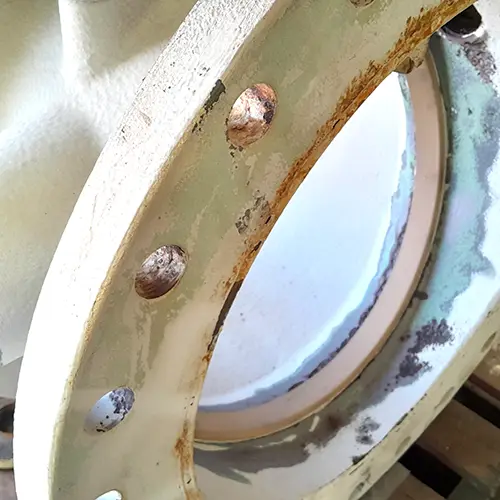
Why Choose John Valves for Valve Reconditioning and Repairs?
✅ Established in 1896 – Trusted by industries for over a century
✅ Certified Services
✅ Australia-Wide Service – On-site and workshop-based solutions
✅ Sustainability Focused – Reduce replacement waste, maximise asset life
✅ Detailed Reporting – Full test certificates and compliance documentation
✅ Expert Team – Skilled in reconditioning all valve brands and configurations
